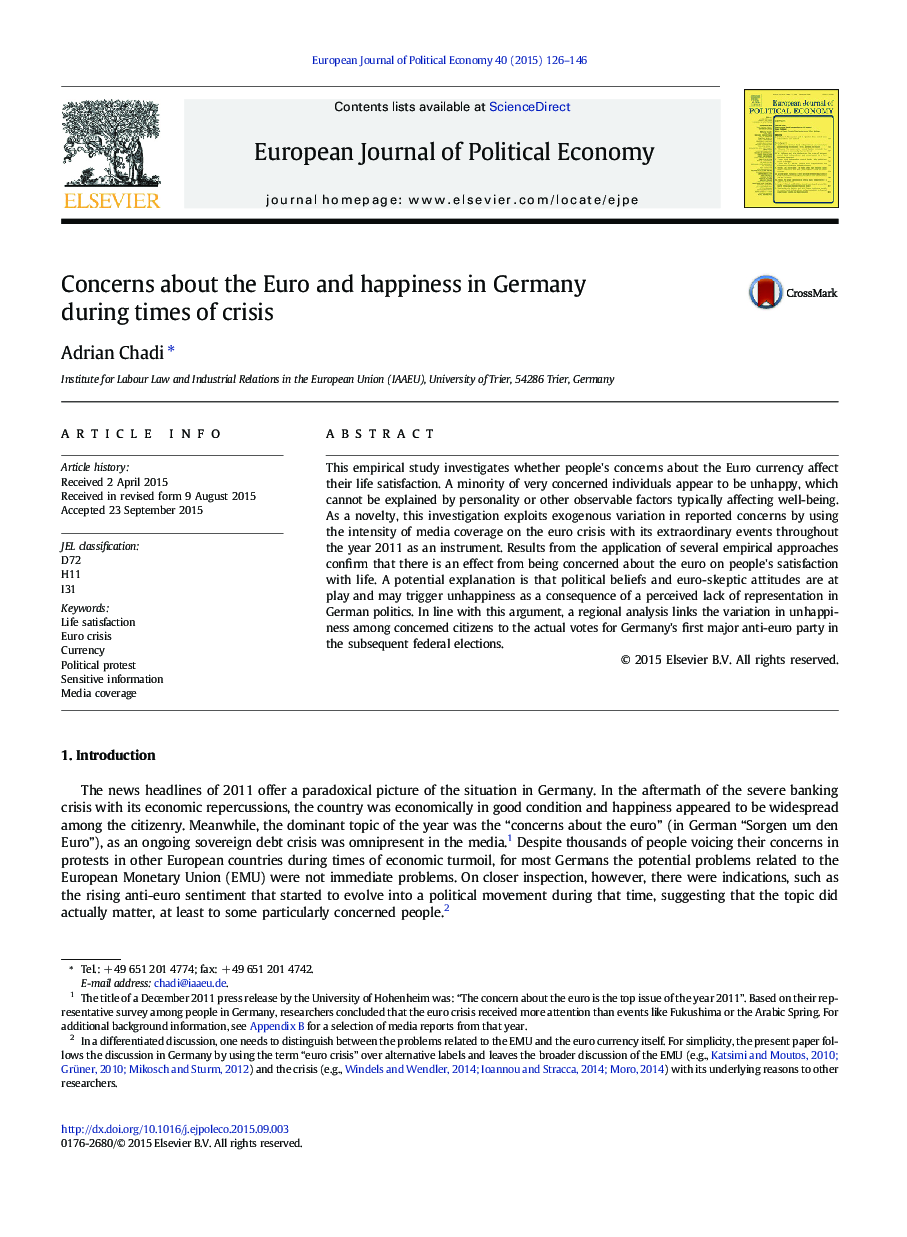| Article ID | Journal | Published Year | Pages | File Type |
|---|---|---|---|---|
| 5067914 | European Journal of Political Economy | 2015 | 21 Pages |
â¢This study finds a causal link between concerns about the euro and well-being.â¢A broad topic, such as currency, can matter strongly to some people.â¢Combining media coverage and interview dates provides quasi-experimental evidence.â¢Unhappiness of euro-concerned people predicts anti-euro votes.â¢Subjective data contains information of objective value, such as political behavior.
This empirical study investigates whether people's concerns about the Euro currency affect their life satisfaction. A minority of very concerned individuals appear to be unhappy, which cannot be explained by personality or other observable factors typically affecting well-being. As a novelty, this investigation exploits exogenous variation in reported concerns by using the intensity of media coverage on the euro crisis with its extraordinary events throughout the year 2011 as an instrument. Results from the application of several empirical approaches confirm that there is an effect from being concerned about the euro on people's satisfaction with life. A potential explanation is that political beliefs and euro-skeptic attitudes are at play and may trigger unhappiness as a consequence of a perceived lack of representation in German politics. In line with this argument, a regional analysis links the variation in unhappiness among concerned citizens to the actual votes for Germany's first major anti-euro party in the subsequent federal elections.
